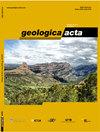Integrated approach for zonation of a mid-Cenomanian carbonate reservoir in a sequence stratigraphic framework
IF 2
4区 地球科学
Q2 GEOLOGY
引用次数: 20
Abstract
The mid-Cenomanian Mishrif Formation (Fm.) is considered as one of the most important rudist-bearing reservoir horizons in the Sirri Oil Fields of the Persian Gulf. Due to the general heterogeneity of carbonate reservoirs, the use of an integrated approach is helpful for investigating porosity and permeability distribution along with recognizing controlling pore system factors in the reservoir. Thus, for the reservoir characterization of the Mishrif Fm., an integrated approach including facies analysis, diagenetic history and sequence stratigraphic analysis is considered. Detailed petrographic studies showed a total of eight microfacies and seven facies belts, related to inner ramp to the basin of a homoclinal carbonate ramp. Humid climatic condition and tectonic activity, associated with eustatic sea-level fluctuations during the mid-Cretaceous, led to meteoric diagenesis of the Mishrif carbonates during subaerial exposures (mid-Cenomanian and Cenomanian-Turonian disconformities). General diagenetic overprints and modifications include micritization, cementation, dissolution, compaction, dolomitization, pyritization and fracturing. Considering this reservoir in the sequence stratigraphic framework reveals that the reservoir zones development is basically related to the Cenomanian–Turonian sequence boundary, recognized in the three studied wells, and also to the mid-Cenomanian boundary, identified only in one well. In addition, pore system properties were inspected by differentiation of Hydraulic Flow Units (HFUs) within the reservoir. The identified flow units, based on their capability for fluid flow, can be classified into four main rock types with very high- (HFUD), high- (HFUC), medium- (HFUB) and low-quality (HFUA). Accordingly, this study shows that the main part of the Mishrif Reservoir is affected by diagenetic processes related to subaerial exposures, resulting in zones with higher storage capacity and fluid flow rates. So, the study of depositional and diagenetic characteristics of the Mishrif carbonates in the sequence stratigraphy framework is essential to unravel the reservoir heterogeneity, and to describe the reservoir zones and their distribution in the field and regional scale. In addition, observed changes in the thickness of hydrocarbon column are attributed to the different location of the studied wells on the anticline structures, which show a tilted oil-water contact with a slope to the North.层序地层格架中格诺曼期碳酸盐岩储层分带的综合方法
中cenomanian Mishrif组(Fm.)被认为是波斯湾Sirri油田最重要的含油气层位之一。由于碳酸盐岩储层具有普遍的非均质性,采用综合方法有助于研究储层的孔隙度和渗透率分布,并识别储层孔隙系统的控制因素。因此,对于Mishrif Fm的储层表征。综合考虑了相分析、成岩史和层序地层分析的方法。详细的岩石学研究表明,该区共发育8个微相和7个相带,与同斜碳酸盐斜坡的内斜坡盆地有关。湿润的气候条件和构造活动,与中白垩世海平面的上升波动有关,导致了Mishrif碳酸盐岩在地面暴露(中cenomanian和Cenomanian-Turonian不整合)期间的大气成岩作用。一般的成岩覆印和改造包括泥晶化作用、胶结作用、溶蚀作用、压实作用、白云石化作用、黄铁矿作用和压裂作用。在层序地层格架中考虑该储层,发现储层发育基本与3口研究井所识别的塞诺曼—turonian层序边界有关,也与1口井所识别的塞诺曼—turonian层序边界有关。此外,通过区分储层内的水力流动单元(HFUs)来检查孔隙系统的性质。所确定的流动单元,根据其流体流动能力,可以分为四种主要的岩石类型:高(HFUD)、高(HFUC)、中(HFUB)和低(HFUA)。因此,Mishrif储层主体部分受到与地面暴露有关的成岩作用的影响,形成了储层容量和流体流速较高的区域。因此,在层序地层格架中研究Mishrif碳酸盐岩的沉积成岩特征,对于揭示储层非均质性,在野外和区域尺度上描述储层带及其分布具有重要意义。此外,油气柱厚度的变化与研究井在背斜构造上的位置不同有关,表现为向北倾斜的油水接触。
本文章由计算机程序翻译,如有差异,请以英文原文为准。
求助全文
约1分钟内获得全文
求助全文
来源期刊

Geologica Acta
地学-地质学
CiteScore
2.50
自引率
6.70%
发文量
13
审稿时长
>12 weeks
期刊介绍:
- Relevant conceptual developments in any area of the Earth Sciences.
- Studies presenting regional synthesis.
- Thematic issues or monographic volumes presenting the results from one or more research groups.
- Short papers reflecting interesting results or works in progress.
- Contributions and results from Research Projects, Workshops, Symposiums, Congresses and any relevant scientific activity related to Earth Sciences.
- Geologica Acta aims to stimulate rapid diffusion of results and efficient exchange of ideas between the widespread communities of Earth Science researchers (with special emphasis on Latinamerica, the Caribbean, Europe, the Mediterranean
 求助内容:
求助内容: 应助结果提醒方式:
应助结果提醒方式:


